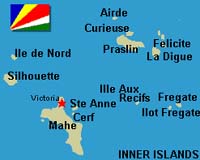| . |  |
. |
Paris (AFP) Dec 20, 2009 The world's oceans are becoming noisier thanks to pollution, with potentially harmful effects for whales, dolphins and other marine life, US scientists said in a study published Sunday. Low-frequency sound in the ocean is produced by natural phenomena such as rain, waves and marine life, and by human activities such as sonar systems, shipping and construction. The sound is absorbed mainly through the viscosity of the water and the presence of certain dissolved chemicals, said the report published in the science journal Nature. But the concentration of chemicals that absorb sound in the oceans has declined as a result of ocean acidification, in turn caused by rising concentrations of carbon dioxide. Rising levels of carbon dioxide come from human activity such as shipping, with the number of ships roughly doubling over the past 40 years, the scientists said. This was in turn increasing the acidity of the ocean, shown by a lowering of its pH levels, they said. Using model simulations, the scientists found that increases in acidity could reduce seawater sound absorption by as much as 60 percent by 2100 in high latitude oceans. Concern about the negative effect of the sea's increased acidity had previously been concentrated on the reduced rate of calcification, such as in coral reefs. "However, a less anticipated consequence of ocean acidification is its effect on underwater sound absorption," the authors said. "A decrease in seawater pH lowers sound absorption in the low-frequency range and, as a result, leads to increasing sound transmission." Future global warming due to an accumulation of greenhouse gases may further decrease the ocean's sound absorption capacity at certain frequencies, the study said. "High levels of low-frequency sound have a number of behavioural and biological effects on marine life," it added. This included tissue damage, mass stranding of mammals such as whales and temporary loss of hearing in dolphins associated with military tests using intense mid-frequency sonar, the report said. Marine species had adapted to varying levels of noise but the consequences of the sea's decreased ability to absorb sound were uncertain and required further research, the scientists said. Share This Article With Planet Earth
Related Links Water News - Science, Technology and Politics
 Seychelles gets sinking feeling as world haggles over missions
Seychelles gets sinking feeling as world haggles over missionsDenis Island, Seychelles (AFP) Dec 16, 2009 Camille Hoareau stands on Denis Island's beach of creamy-white sand, exactly where trees used to grow a few years ago and where the fish will soon swim if global warming surges on. "See those? They all went down recently," he says, pointing to the upturned roots of casuarina trees felled by the ever-advancing beach. Hoareau believes this small privately-owned coralline island in the ... read more |
|
| The content herein, unless otherwise known to be public domain, are Copyright 1995-2009 - SpaceDaily. AFP and UPI Wire Stories are copyright Agence France-Presse and United Press International. ESA Portal Reports are copyright European Space Agency. All NASA sourced material is public domain. Additional copyrights may apply in whole or part to other bona fide parties. Advertising does not imply endorsement,agreement or approval of any opinions, statements or information provided by SpaceDaily on any Web page published or hosted by SpaceDaily. Privacy Statement |